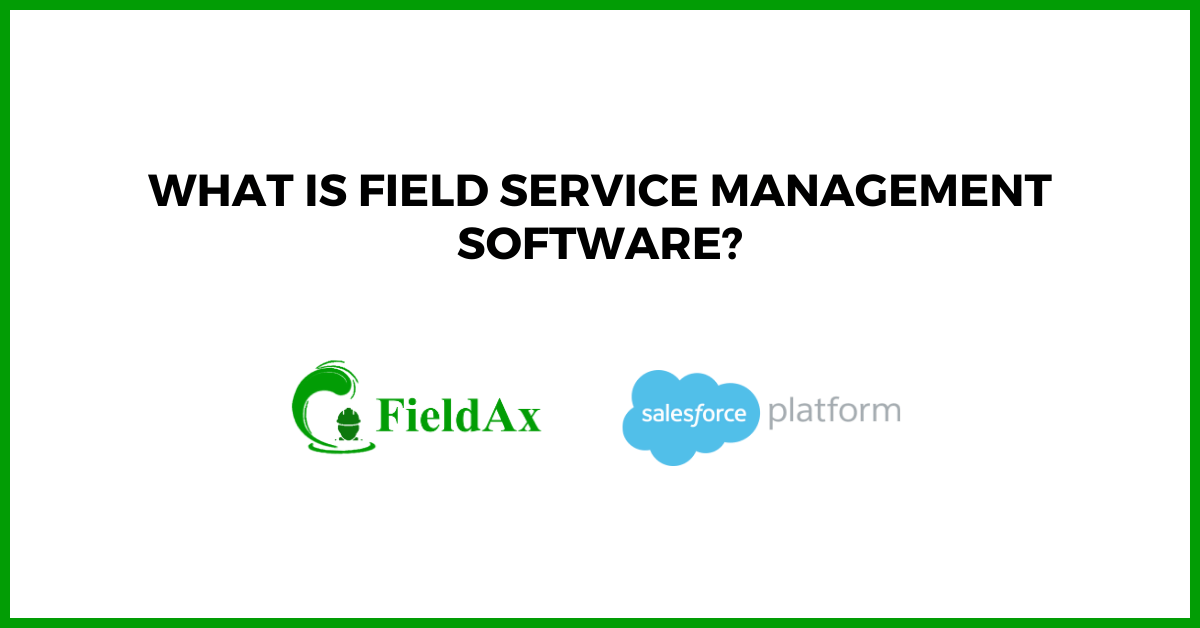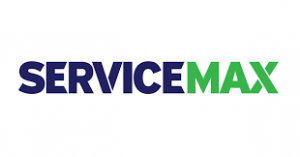Introduction
Field Service Management Software, or FSM Software, is a comprehensive solution that enables businesses to efficiently manage their field operations. It streamlines the entire spectrum of field service management, including scheduling, dispatching, work order management, and inventory control.
Field Service Management Software plays a crucial role in multiple industries and sectors, ranging from construction and manufacturing to healthcare and telecommunications. By automating and digitizing key processes, FSM Software empowers organizations to optimize their field workforce, improve customer satisfaction, and enhance overall productivity.

Key Features and Benefits of Field Service Management Software
Field Service Management Software is a powerful tool that helps businesses streamline their operations and improve their overall efficiency. With its comprehensive range of features, this software can revolutionize the way field service operations are managed. Here are some key features and benefits of using Field Service Management Software:
A. Comprehensive management of field service operations
- Task and work order management: Field Service Management Software allows businesses to easily track and manage all their tasks and work orders. It provides a centralized platform where all the information related to tasks and work orders can be accessed and updated in real-time.
- Resource allocation and scheduling: With the help of this software, businesses can efficiently allocate their resources and schedule tasks. It ensures that the right resources are assigned to the right tasks at the right time, optimizing the entire field service process.
- Real-time tracking and monitoring: Field Service Management Software enables businesses to track and monitor their field service operations in real-time. It provides real-time updates on the status and location of field technicians, helping businesses stay informed and make informed decisions.
- Inventory management: This software also offers robust inventory management capabilities. It allows businesses to keep track of their inventory levels, manage stock, and streamline the entire inventory management process.
B. Improved operational efficiency
- Streamlined workflows and automation: Field Service Management Software helps businesses streamline their workflows and automate repetitive tasks. It eliminates manual processes, reduces paperwork, and improves overall operational efficiency.
- Optimized scheduling and routing: With the software’s advanced scheduling and routing capabilities, businesses can optimize their field service schedules and routes. It helps minimize travel time, reduce fuel costs, and improve overall productivity.
C. Enhanced customer satisfaction
- Faster response times and timely service delivery: Field Service Management Software enables businesses to respond to customer requests faster and deliver services in a timely manner. It ensures that field technicians reach customer locations on time, resulting in enhanced customer satisfaction.
- Improved communication and transparency: This software facilitates better communication and transparency between businesses and their customers. It allows customers to track the status of their service requests, receive real-time updates, and communicate with field technicians directly.
D. Effective workforce management
- Employee scheduling and performance tracking: Field Service Management Software offers features for effective employee scheduling and performance tracking. It enables businesses to assign tasks to field technicians based on their availability and track their performance to ensure optimal productivity.
- Training and skill management: This software also helps businesses manage the training and skills of their field technicians. It allows businesses to track technician certifications, identify skill gaps, and schedule training programs to improve overall workforce competency.
Industries and Sectors Using Field Service Management Software
Find out how various industries benefit from the use of field service management software. Read on to explore examples specific to industries such as manufacturing, healthcare, and telecommunications.
Manufacturing
Field service management software plays a crucial role in the manufacturing industry. With complex production lines and numerous equipment to maintain, manufacturers rely on this software to streamline their service operations. It helps them efficiently schedule maintenance tasks, track inventory and assets, as well as allocate resources effectively. By optimizing their field service processes, manufacturers can minimize downtime, ensure better equipment performance, and ultimately improve overall productivity.
Healthcare
In the healthcare sector, field service management software is essential for maintaining medical equipment and managing service requests. Hospitals, clinics, and medical facilities rely on this software to track maintenance schedules, monitor equipment performance, and streamline service appointments. With the ability to prioritize and assign tasks, healthcare providers can ensure that critical equipment is always operational and that patients receive prompt and uninterrupted care.
Telecommunications
Field service management software is a game-changer for the telecommunications industry. With a vast network of infrastructure, telecom companies face numerous service demands and operational challenges. This software enables efficient scheduling and dispatching of technicians, ensuring that customer service requests are addressed promptly. By optimizing field operations, telecom companies can improve service delivery, reduce downtime, and enhance customer satisfaction.
Implementation and Adoption Strategies for Field Service Management Software
Implementing field service management software can be a transformative step for any enterprise. However, it is crucial to have a well-thought-out strategy to ensure smooth adoption and maximize its benefits. Here are some best practices to consider when introducing field service management software into your enterprise:
1. Gain Senior Leadership Support
Before rolling out the software, secure support from senior leadership. Their endorsement can help create a culture of acceptance and ensure resources are allocated for training and implementation.
2. Define Clear Objectives
Set specific objectives for the software implementation. Identify key performance indicators (KPIs) to measure the success of the implementation and align them with your business goals.
3. Involve Key Stakeholders
Engage key stakeholders from different departments to gain buy-in and understand their specific requirements. Involving stakeholders early on can help address any concerns or resistance to change.
4. Conduct Training Programs
Provide comprehensive training programs to users to ensure they are comfortable with the new software. Tailor the training to different user roles and provide ongoing support to address any challenges or questions.
5. Encourage User Adoption
Promote the benefits of the software to users and emphasize how it will simplify their day-to-day tasks. Engage in open communication channels to gather feedback and address any issues promptly.
6. Implement Change Management Strategies
Implement effective change management strategies to minimize resistance to change. Clearly communicate the reasons behind the software adoption and highlight how it will improve efficiency and productivity.
7. Conduct Pilot Projects
Before rolling out the software across the entire organization, consider running pilot projects. This allows for testing, feedback collection, and fine-tuning of the software implementation process.
8. Monitor and Evaluate
Regularly monitor and evaluate the performance of the software implementation. Collect feedback from users and measure the impact on efficiency, customer satisfaction, and other defined KPIs. Use this data to make necessary adjustments and improvements.
By following these implementation and adoption strategies, your enterprise can successfully introduce field service management software, streamline operations, and achieve higher levels of efficiency and customer satisfaction.
Comparison of Popular Field Service Management Software Solutions
When it comes to field service management software, there are a variety of options available in the market. In this section, we will review and compare some of the leading solutions to help you make an informed decision.
Salesforce FSL

- About: Salesforce FSL offers a comprehensive set of features that can streamline your field service operations. Its mobile app allows technicians to access important information on the go.
- Pricing: Salesforce FSL pricing starts at $150 per user per month.
- Notable Features: Some of the notable features of Salesforce FSL include intelligent scheduling, real-time technician tracking, and integration with other Salesforce products.
FieldAx

- About: FieldAx offers a user-friendly interface and easy integration with existing systems. It provides comprehensive reporting and analytics tools for better decision-making.
- Pricing: FieldAx pricing starts at $35 per user per month.
- Notable Features: Some of the notable features of FieldAx include endless Customization, Seamless Integration, inventory management, and customer feedback management.
ServiceMax

- About: Servicemax is known for its robust feature set and ease of use. It provides excellent customization options to suit your specific business needs.
- Pricing: Servicemax offers customized pricing based on your business requirements.
- Notable Features: Some of the notable features of Servicemax include intelligent scheduling, asset management, and real-time collaboration.
These are just a few examples of field service management software solutions available in the market. It’s essential to evaluate your business needs, budget, and specific requirements before making a decision. Remember to consider the pros and cons, pricing models, and notable features of each solution to find the one that best fits your business.
You are one click away from your customized FieldAx Demo! | Book Demo
How Field Service Management Software Improves Operational Efficiency
Field service management software is a powerful tool that enables organizations to streamline their operations and improve overall efficiency. By leveraging automation, real-time data access, route optimization, and communication tools, businesses can significantly enhance their operational capabilities.
Automation
One of the key ways field service management software improves operational efficiency is through automation. This software automates various manual tasks, such as scheduling appointments, dispatching technicians, and generating work orders. By eliminating the need for manual intervention, businesses can save time, reduce human errors, and optimize resource allocation.
Real-time Data Access
Field service management software provides real-time data access, allowing businesses to have an up-to-date view of their operations. Managers and technicians can access critical information, such as customer details, work order status, and inventory levels, from any location. This enables faster decision-making, quicker response times, and improved overall productivity.
Route Optimization
Effective route planning is essential for field service businesses to minimize travel time, reduce fuel costs, and maximize technician efficiency. Field service management software offers advanced routing capabilities, helping businesses optimize routes based on factors like technician availability, location, and priority. By minimizing unnecessary travel and improving route efficiency, businesses can complete more jobs in less time, resulting in increased operational efficiency.
Communication Tools
Clear and efficient communication among different stakeholders is crucial for smooth field service operations. Field service management software provides communication tools, such as mobile apps and messaging platforms, to facilitate seamless communication between managers, dispatchers, and technicians. This ensures that everyone is well-informed and can quickly exchange relevant information, enabling faster problem resolution and improved service delivery.
Future Advancements and Trends in Field Service Management Software
As the field service management software industry continues to evolve, new technologies and trends are shaping its future. These advancements aim to further enhance operational efficiency and customer satisfaction. Let’s explore some of the emerging technologies and trends:
1. IoT Integration
Internet of Things (IoT) integration is set to revolutionize field service management. By connecting devices, equipment, and sensors, IoT enables real-time monitoring, predictive maintenance, and automated workflows. Field service management software integrated with IoT can proactively identify issues and dispatch the right technicians with the necessary resources, ultimately reducing downtime and improving service delivery.
2. AI-driven Automation
Artificial Intelligence (AI) is transforming the field service management landscape. AI-driven automation simplifies and optimizes various processes, such as scheduling, route planning, and inventory management. Machine learning algorithms can analyze historical data and patterns to make intelligent recommendations, enabling businesses to streamline their operations and make more informed decisions.
3. Predictive Analytics
Predictive analytics is another significant trend in field service management software. By leveraging historical data and advanced algorithms, field service management solutions can predict and prevent equipment failures, optimize resource allocation, and even foresee customer demands. With predictive analytics, businesses can take a proactive approach to field service, minimizing downtime and maximizing productivity.
These emerging technologies and trends in field service management software are transforming the way businesses operate. By embracing these advancements, organizations can gain a competitive edge and deliver exceptional customer experiences. Stay ahead of the curve and leverage the power of field service management software to drive success in your industry.
Conclusion
Enhancing operational efficiency, improving customer satisfaction, and streamlining business processes are just a few of the benefits that field service management software brings to the table. By automating manual tasks, providing real-time visibility, and optimizing resource allocation, businesses can take their field service operations to new heights.
For businesses looking to stay competitive in today’s fast-paced and customer-centric world, adopting field service management software is a strategic move. It enables better scheduling, efficient dispatching, and seamless communication among teams, resulting in improved productivity and customer satisfaction.
As the demand for field service management software continues to grow, it’s crucial for businesses to carefully consider their unique requirements and select a solution that aligns with their goals and objectives. With a plethora of options available in the market, conducting a thorough comparison and evaluation will help ensure the right fit.
Looking ahead, the field service management software industry is bound to witness exciting advancements and trends. From artificial intelligence-powered predictive maintenance to mobile-first solutions and enhanced analytics capabilities, the future holds immense potential for further optimizing field service operations.
In conclusion, field service management software is a game-changer for businesses seeking operational excellence and customer satisfaction. By centralizing and automating critical field service operations, businesses can unlock new levels of efficiency, effectiveness, and profitability.
Author Bio
Co-Founder & CMO at Merfantz Technologies Pvt Ltd | Marketing Manager for FieldAx Field Service Software | Salesforce All-Star Ranger and Community Contributor | Salesforce Content Creation for Knowledge Sharing






